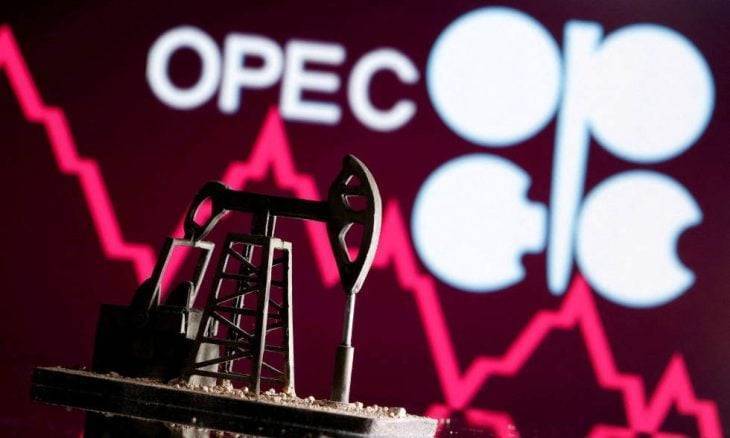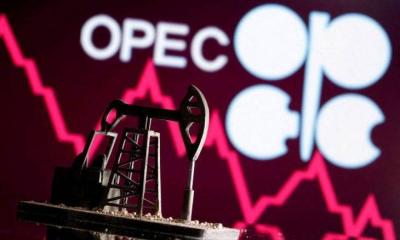Sources within OPEC+ told Reuters that the alliance, which includes the Organization of the Petroleum Exporting Countries (OPEC) and allies including Russia, began two days of meetings today, Saturday, which may conclude with an agreement on new production cuts of up to one million barrels per day, as OPEC faces a decline in oil prices with a supply glut looming on the horizon. OPEC+ pumps about 40% of global production, which means its decisions regarding production policy significantly impact oil prices.
Three sources from OPEC+ told Reuters on Friday that "the alliance is considering potential options for its meeting scheduled for Sunday when ministers from the coalition meet in Vienna at 2 PM local time (1200 GMT), including an additional reduction in oil production." OPEC held a separate brief meeting today, but the ministers did not comment on the possibility of production policy decisions following the gathering.
The sources indicated that "the cuts could reach one million barrels per day in addition to current cuts of two million barrels per day, and voluntary cuts of 1.6 million barrels per day announced in a surprise move in April, which took effect in May." If agreed upon, total production cuts would rise to 4.66 million barrels per day, or about 4.5% of global demand. Production cuts typically take effect in the month following the agreement but ministers can also set a later date for implementation.
Western nations accused OPEC of manipulating oil prices and undermining the global economy by raising energy costs. The West also accused OPEC of being overly biased towards Russia despite Western sanctions linked to Moscow's invasion of Ukraine. In response, OPEC officials stated that the West's increase in monetary supply over the past decade exacerbated inflation and forced oil-producing countries to take measures to maintain the value of their main export commodity.
Asian countries such as China and India have purchased the lion's share of Russian oil exports and refused to join Western sanctions against Russia. UAE Energy Minister Suhail Al Mazrouei stated, "There is an aspiration for a decision that ensures a sustainable balance of supply and demand." The ministers spoke to reporters in the hotels where they were staying in Vienna, but OPEC denied permits to journalists from Reuters and other media outlets to cover the meetings.
The surprise announcement in April led to a $9 increase in oil prices per barrel, surpassing $87 before retreating slightly under pressure from concerns about global economic growth and demand. Yesterday, Friday, Brent crude settled at $76 per barrel. Last week, Saudi Energy Minister Prince Abdulaziz bin Salman stated that he would keep short sellers "in pain" and urged them to "exercise caution," which many market observers interpreted as a warning of further supply cuts.
However, Alexander Novak, the Russian Deputy Prime Minister, later stated that he does not expect any new steps from OPEC+ in Vienna, according to Russian media. Novak, who is on the U.S. sanctions list, is expected to attend the meetings in Vienna tomorrow, Sunday. The International Energy Agency expects global oil demand to rise further in the second half of 2023, potentially boosting oil prices. However, analysts at J.P. Morgan said that OPEC has not acted quickly enough to raise supply to the levels of record U.S. production and greater-than-expected Russian exports.




